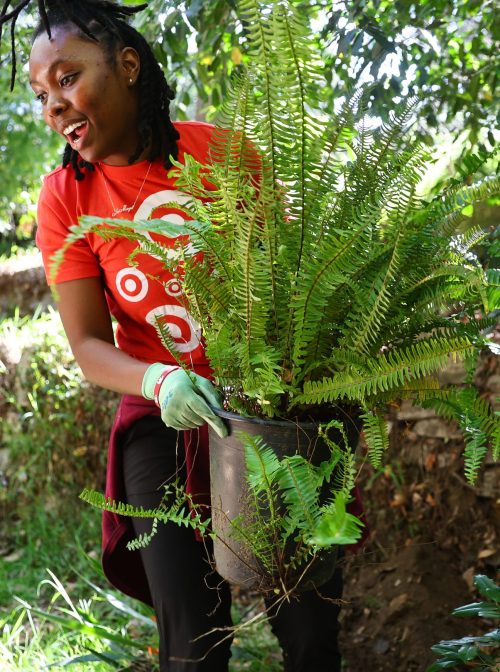“The road,” wrote Spanish poet Antonio Machado, “is made by walking.”
Often adopted as a metaphor for pilgrimage, Sarah Moring, a climate activist living in Manchester, England, said she walked with this quote every day as she joined the Young Christian Climate Network (YCCN) — an advocacy community of young Christians in the U.K. — on its relay before the United Nations Climate Change Conference (COP26), in September 2021.
Stretching over 750 miles and cutting through Cardiff, London, and Oxford, YCCN participants joined a “crusade for climate justice” by walking the route between the end of the G7 meeting in Cornwall on June 13 and COP26’s opening ceremony on October 31 that year.
When I covered the pilgrimage for Christianity Today, I had not done much reporting on people like Moring. But over the last two years, I have reported from India and Israel, Lisbon, and London, where people of faith are coming together to respond to climate change and demand action based on their religious beliefs.
It was with a desire to see more widespread coverage of faith actors advocating for environmental justice that I teamed up with abby mohaupt to write a “Reporting Guide on Religion and Climate Change” for ReligionLink, a nonpartisan, monthly newsletter with source guides and story ideas for journalists reporting on religion.
Developing the guide, I learned how diverse faith groups view climate change and are coming together to address it.
Are religious traditions “going green?”
When I started on the religion beat, I was writing for “The Houston Chronicle”. A city at the center of the global fossil-fuel industry, many of the people I spoke to at local churches, mosques and temples were employees of big oil companies.
At first, it was hard to find faith actors who were advocating for a different way, pushing back against theologies and practices that contributed to the adverse effects of climate change.
When I moved to Florida to pursue a doctorate in religious studies, I met Bron Taylor, a religion professor and author of the book, “Dark Green Religion”.
Theological orientations around divine agency in preventing or promoting natural events, Taylor argued, were hindering environmental understanding and mobilization. In other words, the “greening of religion” hypothesis — the idea that the world’s predominant religions were becoming more environmentally friendly — was not panning out.
With my experience back in Texas, I took to his line of reasoning that, except for Indigenous traditions and some nature-based cosmologies, most religious traditions and systems of thought were not prone to pro-environmental positions.
Working at the climate/religion nexus
Since then, I have encountered a globally networked community of faith actors, working at the nexus of religion and climate change.
These individuals, especially young people, are advocating for environmentally friendly policy, pleading with institutions, governments, and local communities to take concrete steps to address climate change, such as divestment from fossil fuels or adopting vegan and vegetarian lifestyles as an extension of spiritual convictions and a way to counteract the worst effects of climate change.
While working on this guide, I came across people like Gopal Patel of Montclair, New Jersey. Patel is the founder of Bhumi Global, a faith-based environmental movement rooted in Hindu principles. Named for the Hindu goddess who represents Earth, Patel’s organization focuses on the “triple crisis” of climate change, biodiversity loss and pollution.
In my reporting, I interviewed individuals like David Rosen, former Chief Rabbi of Ireland, and senior rabbi of the largest Orthodox Jewish congregation in South Africa, who told me that of all aspects of his work in interreligious dialogue and education, his greatest passion remains the care of the environment and the need to reform our lifestyles accordingly.
“As a religious practitioner, I believe that there is no issue today that is as compelling or imperative for religious people to be engaged with,” he said.
I also spoke with an interfaith coalition in Rwanda developing a multi-pronged, inclusive approach to strengthen food security; Dr. Kezevino Aram of the Shanti Ashram, advocating for more sustainable futures based on Ghandian principles in Tamil Nadu, India, and a group of First Nations people and Muslims convening in Canada to address climate justice and interfaith freedom together.
Stories like these showed me that many believers have the conviction that the climate crisis is pressing, urgent and needs to be resolved in this generation.
“The story of the century”
Together, the intersections between religion and climate change prove a storyline journalists cannot neglect to cover. According to journalist Meera Subramanian and scholar Stephen Prothero of the Religion & the Environment Story Project (RESP), “the climate crisis is the story of the century” and “[r]eligions are the story-makers of all time.”
I hope the Reporting Guide can be helpful in equipping journalists to cover interfaith efforts promoting divestment, global groups acting on rainforest protection or local communities pressing for fossil fuel non-proliferation.
While religious institutions may still have a long way to go in proving their pro-environmental bona fides, there is plenty to report on and I hope the guide helps news writers do so with balance, accuracy, and insight.
Ken Chitwood is a religion nerd, writer and scholar of global Islam and American religion based in Germany. His work has appeared in Newsweek, Salon, The Los Angeles Times, The Washington Post, The Houston Chronicle, The Chicago Tribune, Religion News Service, Christianity Today, and numerous other publications. Follow Ken on Twitter @kchitwood.




